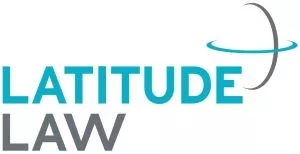My husband and I are massive fans of It's Always Sunny In Philadelphia – we even made sure that we visited the building where Paddy's Pub is based while we were in LA back in 2019 (I was surprised it wasn't in Philadelphia too!). We also love football and have held season tickets for Manchester City since 2015. After being acquired by His Highness Sheikh Mansour bin Zayed Al Nahyan in 2008, Manchester City Football Club has been extremely successful, and the club has managed to attract immense talent, both on and off the pitch – can Wrexham AFC expect similar success?
I started following Wrexham AFC when I heard that Rob McElhenney and Ryan Reynolds had purchased the club. When Welcome to Wrexham was released on Disney+, it was a no brainer that my husband and I would be watching the programme, and we can highly recommend it! In the final episode, Rob McElhenney explains how difficult it is for Wrexham AFC to secure talent, and that it's impossible for the club to sponsor players from overseas, thus making it difficult for them to strengthen their side and secure promotion. Of course, as an immigration lawyer, I started thinking about Wrexham AFC's position, and how easy it could be now (or in the future) for them to attract talented footballers from overseas.
Immigration law is notoriously complex; extensive requirements exist in relation to the sponsorship of football players, so I'll start with a summary of where Wrexham AFC currently find themselves in the football pyramid. Wrexham play in the Vanarama National League, which falls within the National League System in England. The National League System is the league below the English Football League (EFL). The Vanarama National League is the highest league in the National League System; promotion from the National League means promotion to the EFL, which will mean playing amongst other professional football clubs in England and Wales. Teams can then hope to work their way through three divisions in the EFL to secure promotion to the Premier League, the highest level of men's football in England and Wales, and the league in which Manchester City have played since securing promotion at the end of the 2001-02 football season.
It is, without a doubt, Rob McElhenney and Ryan Reynolds' intention to get Wrexham AFC into the EFL, and perhaps further promotion into the Premier League in the future. However, since acquiring the club back in 2021, they've come to realise how difficult it can be to secure promotion into League Two of the EFL. Of course, if Wrexham could secure talent to strengthen their side, securing promotion may be a little easier.
Just like any other employer in the UK, Wrexham AFC can recruit players and support staff who have the right to work in the UK. This means they can easily recruit British and Irish nationals, and also workers from other countries who hold valid permission to remain in the UK (with permission to work) or settlement. In the final episode of Welcome to Wrexham, Rob McElhenney commented on Wrexham's ability to sponsor players from other countries.
To sponsor a player under the International Sportsperson category of the Immigration Rules, Wrexham AFC would need to hold a sponsor licence. Due to the UK's departure from the EU, a sponsor licence is needed for both EEA and non-EEA footballers (unless the workers qualify for other status, of course).
Can Wrexham AFC qualify for an International Sportsperson sponsor licence?
As a UK-based sports club, Wrexham AFC would qualify for an International Sportsperson sponsor licence if they can secure an endorsement from the Home Office's approved governing body. The relevant governing body for football clubs in England is The Football Association (The FA). By endorsing a football club, The FA is confirming that the club is genuine, and that it has a legitimate need to bring overseas nationals to the UK as sportspeople.
The FA's endorsement guidance confirms that only clubs in the Premier League or the EFL are eligible for a sponsor licence. Due to their being in the Vanarama National League, at the minute Wrexham AFC don't qualify for a sponsor licence, but upon promotion to League Two of the EFL, they could potentially qualify for a licence.
Not all clubs in League Two hold a sponsor licence; as of 29 October 2022, of the 24 teams in League Two, just six teams hold a sponsor licence enabling them to sponsor International Sportspeople. These teams include: Bradford City FC, Salford City FC, Tranmere Rovers FC, Sutton United, Crawley Town and Harrogate Town AFC. These teams are not all in the top half of the league, so holding a sponsor licence doesn't necessarily guarantee success! Interestingly, not all clubs in League One have a sponsor licence either, but most do, and, unsurprisingly, every club in the Premier League holds a sponsor licence.
Wrexham are currently second in the Vanarama National League. The team who wins the league secures automatic promotion to League Two; Notts County are currently top of the league, although only 16 of 46 games have been played to date. A second team (the team who wins the play-offs) is also promoted. The play-offs are complex in the National League; the teams that finish second and third secure an automatic place in a semi-final at home, and then the teams who finish fourth to seventh have play-offs to challenge the teams who finish second and third, with the winners then fighting for that second promotion spot. Wrexham certainly have a battle on their hands to secure promotion if they don't win the Vanarama National League!
Assuming Wrexham can escape the Vanarama National League and secure endorsement from The FA, how easy would it be for them to sponsor players?
The International Sportsperson route is for elite sportspeople or qualified sports coaches who are internationally established at the highest level and can make a significant contribution to the elite development of their sport in the UK.
To sponsor an International Sportsperson, the club will need to secure an endorsement from The FA for every player. The endorsement essentially confirms that the player is internationally established and can make a significant contribution in the UK. The FA sets criteria that the Home Office has approved confirming how a player can secure an endorsement; the criteria are published on The FA's website, and confirm that a player can secure an endorsement in the following circumstances:
- The player must have participated in a minimum set percentage of their home country's competitive international matches. Depending on the ranking of the team and the percentage of the player's appearances, the player may secure an Auto Pass and qualify for an endorsement or may secure up to 10 points.
- If the player doesn't qualify for an Auto Pass based on
their home country's competitive international matches, they
need to score 15 points which can be achieved based on:
- The points scored for the percentage of their international appearances (as above)
- Percentage of domestic minutes, with more points being awarded for teams in Band 1 (Premier League, Bundesliga, La Liga, Serie A and Ligue 1) as opposed to teams in lower bands. Youth players (under the age of 21) have a slightly different points assessment for domestic appearances and can score more points based on a single appearance, regardless of the number of domestic minutes played.
- Percentage of continental minutes in Band 1, 2 or 3 – these include, for example, UEFA Champions League (Band 1) and UEFA Europa League (Band 2).
- Final league position of the player's last club.
- Points awarded in respect of the continental progression of the player's last club.
- League quality of the player's current club.
- If the player scores 15 or more points, they qualify for an endorsement.
- If the player achieves 10-14 points, they may still qualify for endorsement if exceptional circumstances prevented the player achieving 15 points, or if the player is a youth player and the club can evidence that they show significant potential and is of sufficient quality to enhance the development of the game in England. These endorsement applications will be assessed by an independent Exceptions Panel appointed by The FA.
Of course, whether the player can achieve an Auto Pass or sufficient points will depend on their experience, the league they play in, how well their team did in the last season, and how often the player plays. For example, let's look at the circumstances surrounding an endorsement if Wrexham AFC were to identify a senior (over the age of 21) player who plays in Brazil's national team and also in the top Brazilian league (Campeonato Brasileiro Serie A). Brazil is ranked as the second top performing national team, just behind Belgium. Therefore, the player would secure an Auto Pass for an endorsement if they achieved at least 30% international appearances in the 12 or 24-month period preceding the application for an endorsement. They'd achieve 10 points for 20-29% appearances and could achieve 5 points for domestic appearances (meaning qualification for endorsement) if their domestic minutes were between 60-69% (Campeonato Brasileiro Serie A is a Band 3 league).
If an endorsement is secured, does that mean entry clearance is certain?
Even if an endorsement can be secured for a player, there are other requirements contained in the Immigration Rules that players must meet, including an English language requirement if they're coming to the UK for more than 12 months. Wrexham AFC will also need to have all the necessary HR procedures in place to prove that they're capable of meeting their sponsorship duties.
As mentioned above, depending on the player's circumstances, alternative immigration options may exist. For instance, some players may qualify for British citizenship, or potentially a visa under a different immigration route.
The content of this article is intended to provide a general guide to the subject matter. Specialist advice should be sought about your specific circumstances.

